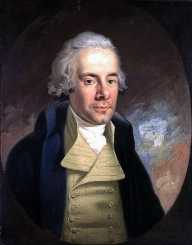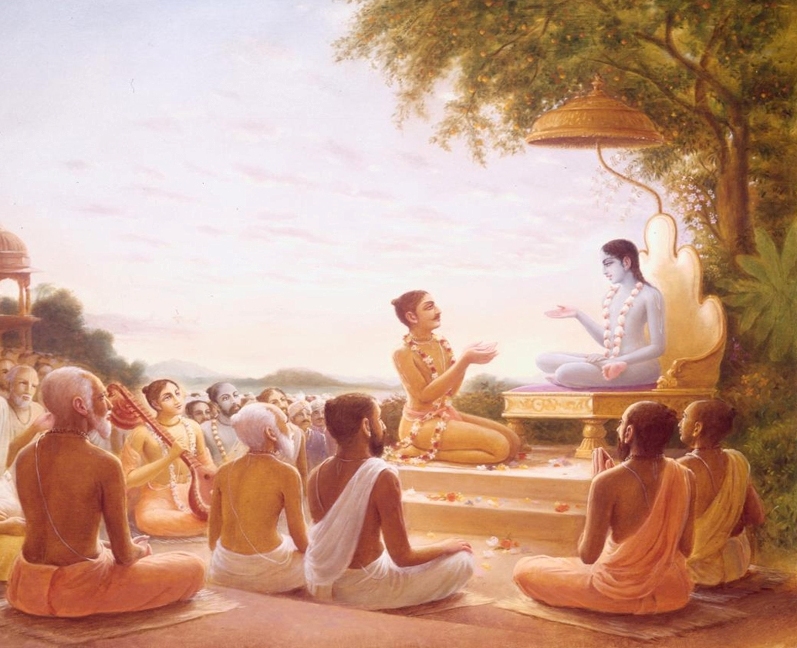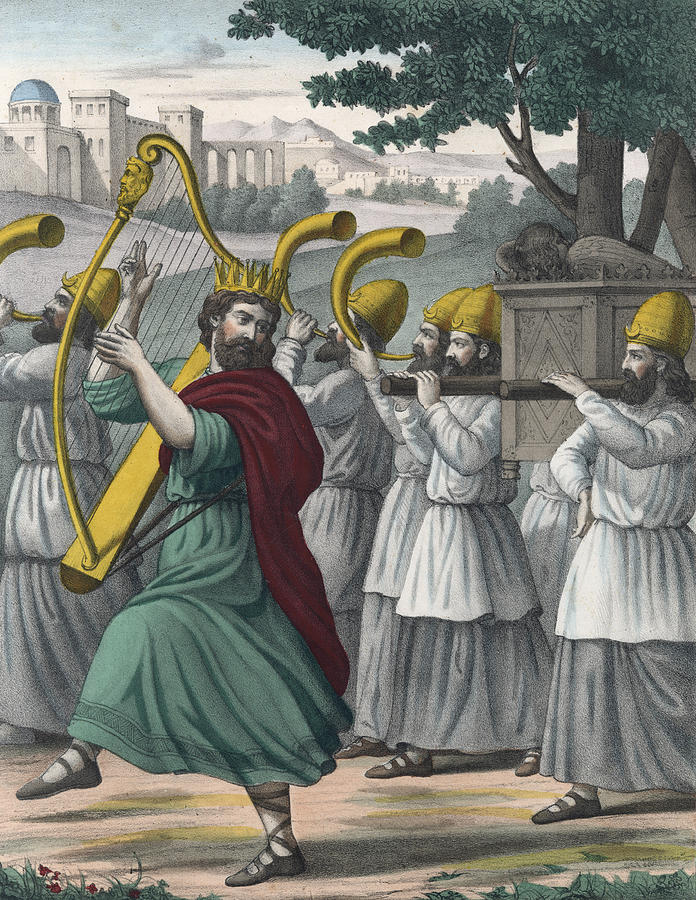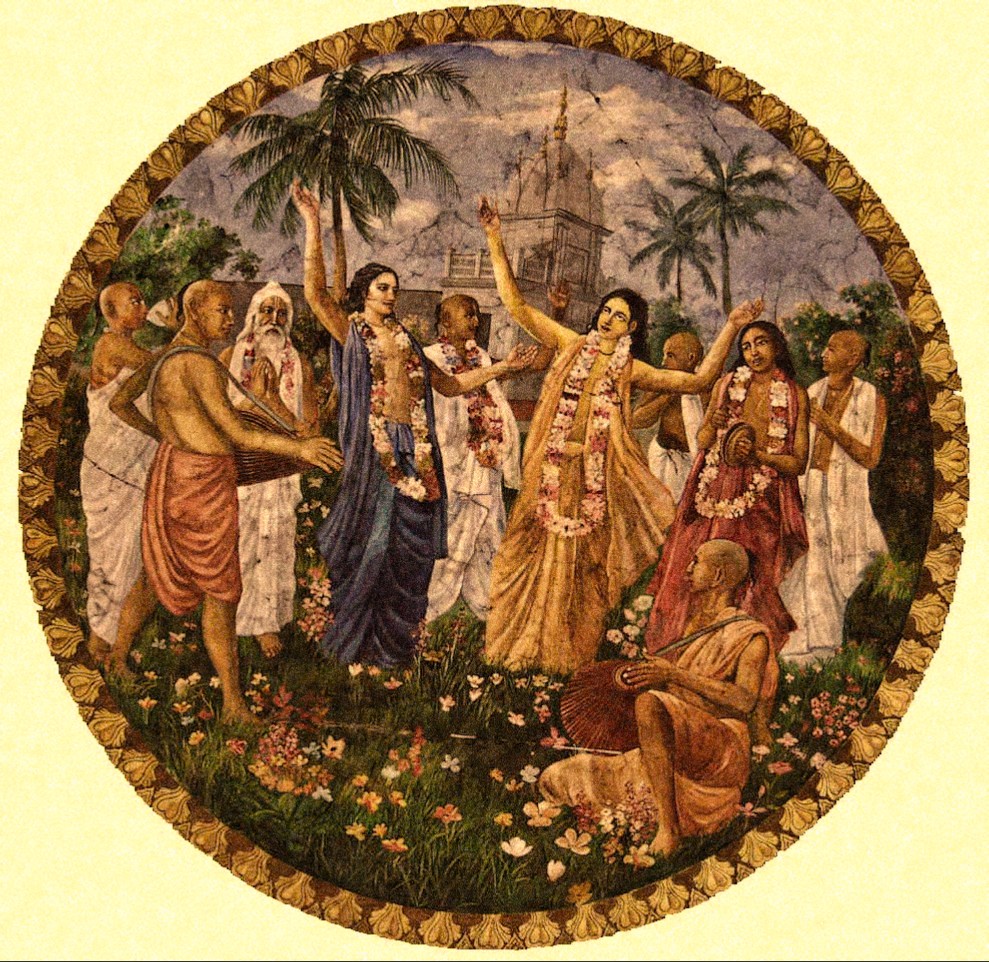
There is a verse in the Old Testament which is the source of a commonly heard saying:
Can a person change the colour of his skin or the leopard change its spots?
[Jeremiah 13:23]
The popular saying “a leopard doesn’t change his spots” taken from this verse is used by people to express the idea that people can’t change, so don’t expect them to. It implies that our nature is already set like concrete and unchangeable. The second part of the verse goes:
Neither can you do good who are accustomed to doing evil.
Though it is true that if we continue to do evil things our hearts will further harden, and we will become increasingly disinclined to do good deeds, this does not mean that a person cannot change due to the mercy of God or his pure devotee.
Amazing Grace
In 1725, John Newton was born in the East End of London near the Thames. His father was a shipping merchant and his mother was a devout Christian. She had intended Newton to become a clergyman, but she died of tuberculosis when Newton was six years old. For the next few years, Newton was raised by his distant stepmother while his father was at sea, and spent some time at a boarding school where he was mistreated.

Newton went to sea when he was eleven as an apprentice seaman, and worked on slave ships that went up African rivers to capture slaves. Through bad association he became an atheist and often openly mocked the captain by creating obscene poems and songs about him that became so popular the crew began to join in. He entered into disagreements with several colleagues which resulted in his being nearly starved to death, imprisoned while at sea and chained like the slaves they carried, then outright enslaved and forced to work on a plantation in Sierra Leone. He was eventually freed and returned to sea.
While aboard the ship Greyhound, Newton gained notoriety for being one of the most profane men the captain had ever met. In a culture where sailors commonly used foul language, Newton was admonished several times for not only using the worst words the captain had ever heard, but creating new ones to exceed the limits of verbal debauchery. He would amuse the other sailors by changing Bible verses and hymns so that their meaning became obscene and blasphemous.

In March 1748, while the Greyhound was in the North Atlantic, a violent storm came upon the ship that was so rough it swept overboard a crew member who had been standing where Newton was moments before. After hours of the crew emptying water from the ship and expecting to be capsized, Newton turned and cried, “Lord have mercy upon us!” In terror, he tied himself to the pump to keep from being washed over. After an hour’s rest, an exhausted Newton returned to the deck to steer for the next eleven hours where he pondered what he had said.
About two weeks later, the battered ship and starving crew landed in Ireland. For several weeks before the storm, Newton had been reading the 15th-century book “The Imitation of Christ” by Thomas à Kempis.

The Imitation of Christ is a guide to changing our lives by endeavouring to follow in the footsteps of Christ. I have included a few quotes from this book:
We would be well on the way to perfection if we could weed out one vice from ourselves each year.
If thou knewest the whole Bible, and the sayings of all the philosophers, what should all this profit thee without the love and grace of God? Vanity of vanities, all is vanity, save to love God, and Him only to serve. That is the highest wisdom, to cast the world behind us, and to reach forward to the heavenly kingdom.
How many perish through empty learning in this world, who care little for serving God. And because they love to be great more than to be humble, therefore they ‘have become vain in their imaginations.’ He only is truly great, who hath great charity. He is truly great who deemeth himself small, and counteth all height of honour as nothing. He is the truly wise man, who counteth all earthly things as dung that he may win Christ. And he is the truly learned man, who doeth the will of God, and forsaketh his own will.
Today man is, and tomorrow he will be seen no more. And being removed out of sight, quickly also he is out of mind. O the dullness and hardness of man’s heart, which thinks only of the present, and looks not forward to the future. We ought to live our lives in every deed and thought as if we were to die this day.
[Thomas à Kempis]
The memory of crying out to God in a moment of desperation did not leave him. He began to ask if he was worthy of God’s mercy or in any way redeemable, as he had not only neglected his faith but directly opposed it. Mocking others who showed their faith, he had derided God, denouncing Him as a myth. But God’s love and forgiveness are always there for one who sincerely turns to Him. Newton came to believe that God had sent him a profound message, and had begun to work through him. At age thirty, He gave up being a sailor and started studying. He became an Anglican minister, and wrote many hymns, including “Amazing Grace,” probably the most popular of all Christian hymns:
Amazing Grace, how sweet the sound,
That saved a wretch like me.
I once was lost but now am found,
Was blind, but now I see.Twas Grace that taught my heart to fear.
And Grace, my fears relieved.
How precious did that Grace appear
The hour I first believed.Through many dangers, toils and snares
I have already come;
’Tis Grace that brought me safe thus far
and Grace will lead me home.The Lord has promised good to me.
His word my hope secures.
He will my shield and portion be,
As long as life endures.Yea, when this flesh and heart shall fail,
And mortal life shall cease,
I shall possess within the veil,
A life of joy and peace.When we’ve been here ten thousand years
Bright shining as the sun.
We’ve no less days to sing God’s praise
Than when we’ve first begun.Amazing Grace, how sweet the sound,
That saved a wretch like me.
I once was lost but now am found,
Was blind, but now I see.
Newton, in humble truthfulness, said:
I am not the man I ought to be, I am not the man I wish to be, I am not the man I hope to be, but by the grace of God, I am not the man I used to be.
Valmiki
Valmiki, the author of the Ramayana, a vast Vedic scripture about the life of Lord Rama, was originally a bushranger – a dacoit or highwayman who robbed and murdered travelers along a road. Once, Valmiki tried to rob the great sage Narada Muni. When Narada asked him why he was living such a cruel and sinful life, he said he was doing it for the benefit of his family. Narada asked him if his family would share the bad karma he was incurring due to his criminal activities. The robber replied positively, but Narada told him to confirm this with his family. The robber asked his family, but none agreed to bear the burden of karmic reaction. They would happily accept the proceeds of his crimes, but none would agree to share the resultant sinful reactions. Dejected, the robber finally understood the futility of his sinful life and begged for Narada’s forgiveness.

Narada asked him to chant the name of Rama, but Valmiki felt incapable of doing so after murdering many people. Instead he agreed to chant “Mara,” the name of death. In this way he was tricked into chanting the names of God as “Mara Mara Mara” became “Rama Rama Rama” as the words ran into each other. The robber meditated for many years, finally becoming a pure devotee of the Lord. There is a similar story about Mrigari the hunter who enjoyed wounding forest animals and watching them suffer before they died. He also had the great fortune of meeting Narada Muni, and after hearing and applying his instructions, the fierce hunter changed so completely that he would not even step upon an ant. Spiritual life is characterized by the change of heart. In the second canto of Srimad Bhagavatam, we find the following verse:
Certainly that heart is steel-framed which, in spite of one’s chanting the holy name of the Lord with concentration, does not change when ecstasy takes place, tears fill the eyes and the hairs stand on end.
[Srimad Bhagavatam 2:3:24]
In the purport to this verse Srila Bhaktivedanta Swami explains:
The whole process of spiritual culture is aimed at changing the heart of the living being in the matter of his eternal relation with the Supreme Lord as subordinate servant, which is his eternal constitutional position. So with the progress of devotional service, the reaction of change in the heart is exhibited by gradual detachment from the sense of material enjoyment by a false sense of lording it over the world and an increase in the attitude of rendering loving service to the Lord.
… It is expected by all means that by discharging regulated devotional service one must manifest the change of heart. If there is no such change, the heart must be considered steel-framed, for it is not melted even when there is chanting of the holy name of the Lord. We must always remember that hearing and chanting are the basic principles of discharging devotional duties, and if they are properly performed there will follow the reactional ecstasy with signs of tears in the eyes and standing of the hairs on the body. These are natural consequences and are the preliminary symptoms of the bhava stage, which occurs before one reaches the perfectional stage of prema, love of Godhead.
[Srimad Bhagavatam 2:3:24 Purport]
So although it may be difficult to go through changes if we are addicted to engaging in harmful or materialistic activities, we should never feel that it is not possible to change. Change is inevitable if one chants the holy names of the Lord. Jesus once told his disciples that it is as difficult for a worldly minded person to enter the kingdom of God as it is for a camel to pass through the eye of a needle. The disciples became bewildered, thinking that spiritual life was therefore impossible for most people. This is described in Luke in the New Testament:
Those who heard this asked, ‘Who then can be saved?’ Jesus replied, ‘What is impossible with men is possible with God.’

And how is this possible. Just prior to his crucifixion, Jesus prayed to his Father, Lord Krishna, to protect his disciples:
I will remain in the world no longer, but they are still in the world, and I am coming to You. Holy Father, protect them by the power of Your name – the name You gave me – so that they may be one as we are one. While I was with them, I protected them and kept them safe by that name you gave me.
[John 17:11-12]
Though it is not widely understood today, Jesus taught his disciples to take shelter and protection from the Lord by the power of His holy names. The process was the same. So, sometimes we may feel despondent in our spiritual lives, thinking that we will never be able to change. Sometimes we have a problem, an addiction or bad habit that we just can’t give up, or we are unable to do something that we know we should be doing. And to change just seems impossible. However, if we persevere, and continue to chant the holy names in the association of devotees, and we pray for the Lord’s help, things will gradually change. If we persevere, then somewhere down the track we will discover that we no longer have an attraction for what formerly seemed impossible to give up, and our attraction for living a spiritual life has become that much stronger.
No matter how difficult our situation may seem at times, we should never give up our spiritual practices or become despondent about our chances of attaining spiritual fulfillment. The Lord’s love for us is unconditional and He is far more anxious that we should return to Him than we may be to attain Him. That’s why it is said that if we take one step towards Krishna He will take one hundred steps towards us. We should not think that if we follow this process, which is recommended in all of the world’s scriptures and by countless great saintly personalities, that we will not be helped.
How does Krishna help us? This is explained in the Srimad Bhagavatam:
Sri Krishna, the Personality of Godhead, who is the Paramatma [Supersoul] in everyone’s heart and the benefactor of the truthful devotee, cleanses desire for material enjoyment from the heart of the devotee who has developed the urge to hear His messages, which are in themselves virtuous when properly heard and chanted.
[Srimad Bhagavatam 1:2:17]

So, can a leopard change its spots? Well if a camel can pass through the eye of a needle or a murderer can become a great sage, why not? Anything is possible with the amazing grace of God. He has unlimited and inconceivable potencies. When people say “a leopard can’t change his spots,” they mean that people can’t change their intrinsic nature. And while it may be beneficial in an Addicts Anonymous meeting to say, “Hi, my name is Kenarama and I’m a matter addict,” because we cannot change until we admit we have a problem, someone who follows the bhakti-yoga process must also realize that he is not eternally a matter addict, this is only a temporary condition. Being a drug addict, a gambling addict, a sex addict, an alcoholic or a matter addict is not any person’s actual intrinsic nature.
Lust, anger, greed, addiction, weakness and selfishness etc. – these qualities have no part in our intrinsic nature. Our intrinsic nature is that we are “sat-chit-ananda” – we are eternal, full of spiritual wisdom, and always blissful, full of spiritual happiness. That is the true and eternal nature of the soul. We are the eternal loving servants of the Supreme Soul. This is our intrinsic nature, not our temporary material conditioning. We are like diamonds which have been buried beneath mountains of dirt. When the dirt is washed away, our true shining nature will be revealed.
Great saintly personalities tell us that “the sinner of today is the saint of tomorrow.” The true nature of the soul is that we are all saints – though our halos may now be stored in moth-balls, we are all pure and eternal. Our materially conditioned nature is only a temporary condition. As living spirit souls, we are all originally amazing enlightened spiritual entities, but due to our association with matter from time immemorial, our original consciousness is now covered by the material atmosphere. The chanting of these sacred mantras is the transcendental process for reviving this original consciousness. Yoga – union of the individual soul with the Supreme Soul in love – is not an artificial imposition on the mind. This consciousness is the original energy and nature of the living entity.

King David chanted God’s names and danced as he entered Jerusalem. Among the Psalms of the Old Testament there are many nice prayers asking the Lord to help us and purify our hearts. And if we take shelter of the Lord’s mercy, He will help us to change. He will not reject us:
Create in me a clean heart, O God, and renew a steadfast spirit within me.
[Psalm 51:10]
Our help is in the name of the Lord, Who made heaven and earth.
[Psalm 124:8]
Because Thy loving kindness is better than life, my lips shall praise Thee. Thus will I bless Thee while I live. I will lift up my hands in Thy name.
[Psalms 63:3-4]
Praise ye the Lord. Sing unto the Lord a new song, and His praise in the congregation of saints. Let them praise His name in the dance; let them sing praises unto Him with the timbrel and harp.
[Psalms 149:1,3]
Let them praise the name of the Lord, for His name alone is excellent. His glory is above the earth and heavens.
[Psalms 148:13]
As our hearts become a little purified and we start to taste even a small drop of the sweetness of the Lord’s sacred names, our material addictions will gradually lose their attractiveness and release their grip upon our hearts. As we develop a higher taste, our lower tastes just naturally fall away. We should have faith, but not in our own ability to purify ourselves. Just as we cannot clean two dirty hands by rubbing them together – we need an external cleansing agent like water to cleanse us. Similarly, we cannot purify ourselves spiritually, but the Supreme Person is all pure and all-purifying – He can purify us if that is our desire, we just have to come in contact with His unlimited purity. And how do we do this? Primarily by hearing and chanting these sacred mantras which are all eternal names of the Supreme. Lord Chaitanya, in His first prayer, describes the purifying effect of chanting these names:
All glories to the congregational chanting and singing of God’s names, which cleanses the heart of all the dust accumulated for years together, and extinguishes the fire of conditional life, of repeated birth and death. This congregational chanting of the names of God is the prime benediction for humanity at large because it spreads the rays of the benediction moon. It is the life of all transcendental knowledge. It increases the ocean of transcendental bliss, and it enables us to fully taste the nectar for which we are always anxious.
[Lord Chaitanya’s First Prayer]



Leave A Reply